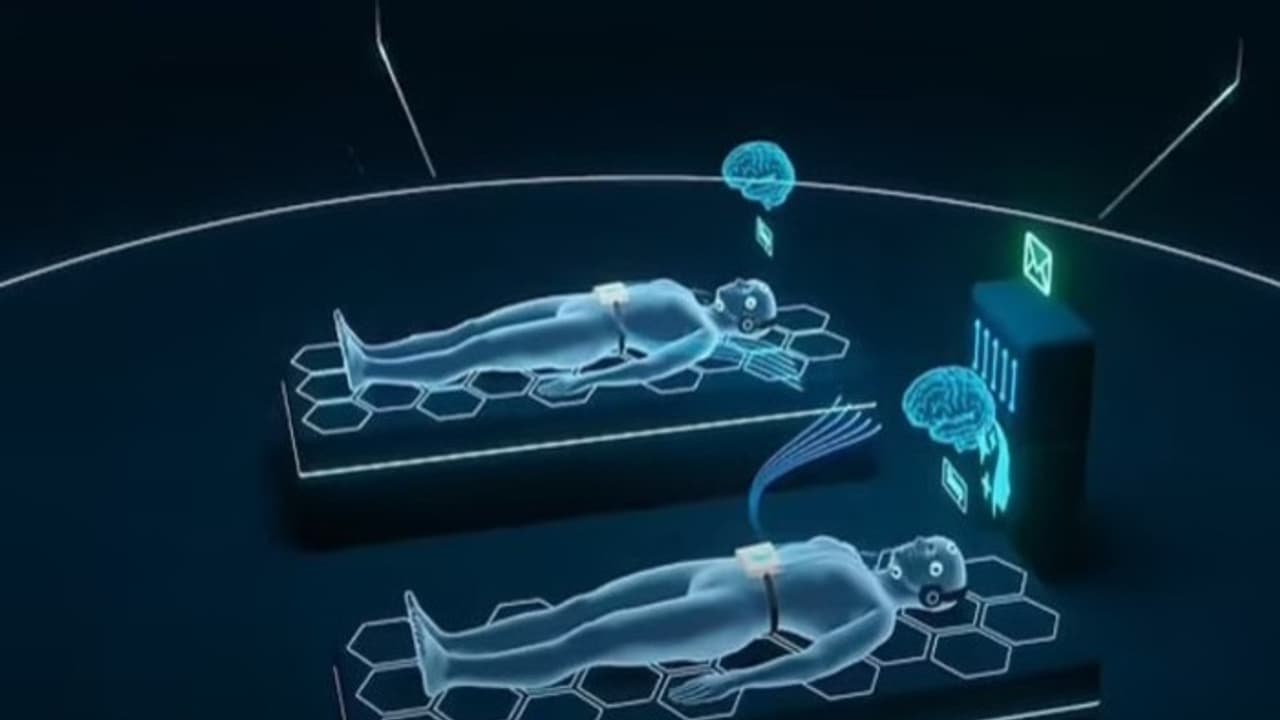In a monumental leap toward merging dreams and reality, scientists have successfully achieved two-way communication between individuals during lucid dreaming, bringing the realm of science fiction ever closer to our waking lives.
In a monumental leap toward merging dreams and reality, scientists have successfully achieved two-way communication between individuals during lucid dreaming, bringing the realm of science fiction ever closer to our waking lives.

This groundbreaking experiment, which echoes scenes from the movie Inception, was conducted by REMspace, a California-based tech startup dedicated to revolutionizing sleep and dream control. Incredibly, the company managed to exchange a message between two dreamers, both fast asleep in their respective homes, using a specially designed set of equipment.
Though REMspace has kept the specifics of their technology under wraps, the tools they used involved a ‘server,’ ‘sensors,’ and an 'apparatus' that monitored the participants' brain waves. According to the company, the server transmitted a word through a unique language, allowing the dreamers to communicate across the boundary of sleep.
REMspace’s visionary CEO and founder, Michael Raduga, boldly proclaimed: “Yesterday, communicating in dreams seemed like science fiction. Tomorrow, it will be so common we won’t be able to imagine our lives without this technology.” Raduga’s excitement is palpable as he predicts a future where this innovation paves the way for endless commercial applications, forever altering how we view communication within dreams.
While the technology is yet to undergo rigorous peer review, its potential is undeniable. If verified, it could mark a historic milestone in sleep research, with far-reaching implications for mental health treatment, skill enhancement, and more, as REMspace hinted.
Lucid dreaming—the state in which one is aware of dreaming and can control their actions within the dream—is a phenomenon that occurs during REM (Rapid Eye Movement) sleep. This experiment showcased the ability to send and receive messages during these lucid states, with participants performing this unprecedented exchange while asleep in different locations.
The breakthrough experiment unfolded when the server, after detecting that one participant had entered a lucid dream, generated a random word from the specialized language and sent it via earbuds. This dreamer repeated the word, which was captured and stored by the server. When the second participant entered their lucid dream eight minutes later, the server transmitted the word from the first dreamer, which was repeated upon their awakening—marking the first successful two-way communication during sleep.
REMspace repeated this marvel with another set of participants, yet Raduga knows more validation is necessary. The company is eager for further scientific scrutiny to confirm their claims.
Raduga’s fascination with dream control is far from ordinary. In 2023, the daring CEO notoriously performed a life-threatening experiment on himself, attempting to implant a microchip in his brain to take control of his own lucid dreams. The procedure, which he carried out with shockingly makeshift tools—a hardware store drill and paperclips—was inspired by nothing more than hours of YouTube tutorials and his self-directed practice on sheep.
Though the experiment was extremely dangerous, Raduga survived the ordeal, later having the chip removed in a hospital after five weeks. Reflecting on this wild chapter, he confessed: “I am glad I survived but I was ready to die.”
Now, with this latest innovation, Raduga envisions a future where dream communication becomes as routine as AI is today. “We believe that REM sleep and related phenomena, like lucid dreams, will become the next big industry after AI,” he stated, setting the stage for a revolution in how we perceive sleep, dreams, and even reality itself.
Also read: Why we forget dreams: 6 Key reasons and science behind it
